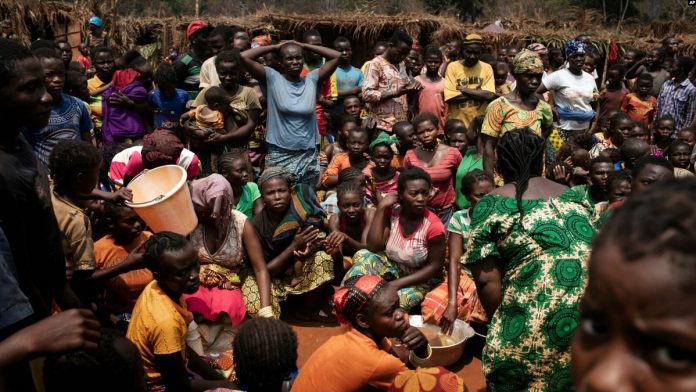News in Brief:
– While overall food insecurity in West and Central Africa may improve by May 2024, millions still face dire situations, especially regions like Burkina Faso and northeastern Nigeria.
– Continued humanitarian assistance and solutions addressing root causes like conflict and climate change are crucial.
While most areas in West and Central Africa are expected to experience minimal food insecurity by May 2024, millions remain at risk. This is according to the latest Cadre Harmonisé analyses, contained in an updated report on global food security by the World Bank.
Also, the report stated that nearly 32 million people required urgent food and nutrition assistance between October and December 2023. This number is expected to rise to 44.5 million during the lean season between June and August 2024, with an additional 85.6 million at risk of facing food crises.
Additionally, while a slight improvement is projected for some areas, several regions continue to face critical challenges. Burkina Faso, Mali, Chad, Niger, Cameroon, and Nigeria are expected to have ‘crisis’ levels of food insecurity. This is primarily due to persistent conflict, disrupted livelihoods, and limited access to markets.
Conflicts worsening food insecurity in Burkina Faso and Nigeria
Even more alarming, specific areas in Burkina Faso and northeastern Nigeria face ’emergency’ levels of food insecurity. This situation could deteriorate further, with the potential for ‘famine’ in Djibo Commune, Burkina Faso, due to an ongoing blockade by armed groups.

An emergency level of food insecurity is characterised by people having large food consumption gaps which translates to very high acute malnutrition and excess mortality. It is also a situation when these people are only able to mitigate large food consumption gaps by employing emergency livelihood strategies and asset liquidation, which are unsustainable for long periods.
The World Banks says that these worrying figures highlight the urgent need for continued humanitarian assistance and efforts to address the root causes of food insecurity in West and Central Africa. Conflict, climate change, and economic instability are major factors contributing to this crisis, requiring comprehensive solutions to ensure long-term food security for millions of people.



